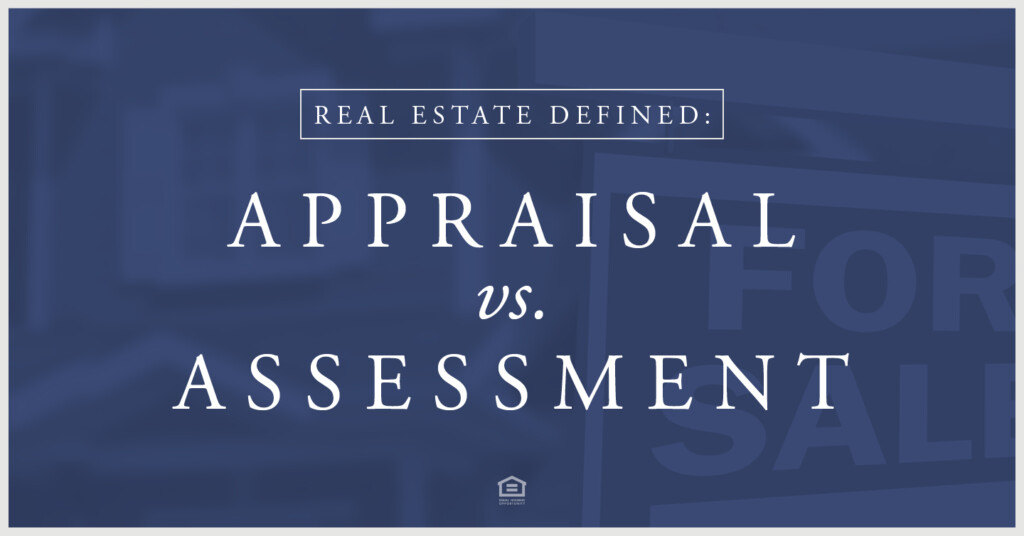
Real estate is filled with terms that are similar but mean slightly different things. For example, appraisal vs. assessment. While these two terms share similarities in what they mean, there are some major differences. Let’s take a quick look at how these two terms differ from each other.
Appraisal vs. assessment: the difference
A home appraisal and assessment are both measures used to determine the value of a home. However, these two terms cannot simply be used in place of one another.
The main difference between an appraisal and an assessment is the basic purpose that each serves. An appraisal, which is based on recent sale prices of properties in your area and other factors, is used to determine a home’s actual value. An assessment is a relative measure of value that reveals how the same property will be taxed by the government.
Now it’s time to break down appraisal vs. assessment.
How appraisals work
Home appraisals are carried out by state-licensed appraisers. This is typically a financial institution that is serving as the mortgage lender.
An appraiser helps determine your property’s current market value. Primary factors include the property’s total square footage, location, condition of the home and any amenities.
Appraisals impact a home’s selling price and mortgage amount. They are provided as a form of assurance to lenders and potential home buyers to help ensure that they’re not being asked to loan more money on a property than it is worth.
Keep in mind that appraisals are based on a more in-depth evaluation than tax assessments. So, how long does an appraisal take? Depending on the type of appraisal, an appraisal can take anywhere from a couple days to a week. Read more on our blog, 7 Ways to Prepare for a Home Appraisal.
Conducting appraisals is part of the mortgage underwriting and due diligence process. They help both buyers and sellers by providing assurance that the property correctly aligns with the home’s purchase price. Learn more on our blog, 8 Myths About Home Appraisals.
How assessments work
The local government takes in significant revenue by levying property taxes on homeowners. These sums are used to pay for assorted expenses such as public safety, schools, works, parks and other community benefits.
Local jurisdictions set tax rates and home assessment procedures and then employ assessors to review property data and visit local properties to determine their assessed values.
Home assessors take various factors into account, such as home inspection findings, prior years’ worth of property and the value of similar homes that have recently sold in the area.
But remember: the data an assessment provides is for the purpose of taxation. The findings do not represent the total amount that you could obtain through the sale of your property.
Summary
Bottom line? Your home’s appraised value more closely aligns with what you might expect to receive when you sell your property. Your home’s assessment value determines how much you can anticipate paying in property taxes each year.
Need another helping hand to guide you through the appraisal vs. assessment process when buying or selling your home? Then contact Ryan Roberts! And for more real estate news and updates, continue reading our blogs.



